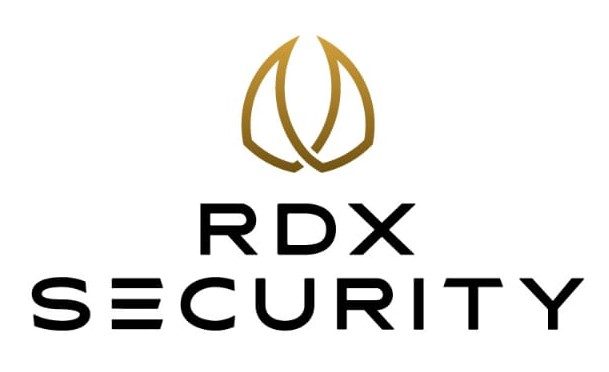Tax Planning for High Net Worth Individuals
- November 2022
- 5 minutes
 What is a High Net Worth Individual?
What is a High Net Worth Individual?
A high net worth individual is not clearly defined. Anyone in the UK with assets worth more than £10 million was classified as a high net worth individual after Her Majesty’s Revenue and Customs (HMRC) changed the definition of one in 2016.
The prior cut-off point was £20 million. The UK lacks a national standard for identifying very high net worth individuals. The accepted definition of an ultra high net worth individual is that of the US, which classifies such a person as having investable assets of at least $30 million (£23.4 million) (assets excluding their primary residence and personal items).
 What does a “Tax Optimisation Strategy” involve?
What does a “Tax Optimisation Strategy” involve?
Your personal financial plan will be created once your financial advisor or wealth planner has determined your personal financial situation and your financial goals. Your wealth planner will take into account how best to invest your money to minimise the effects of tax in addition to taking into account your appetite for investment risk, your capacity to withstand market volatility, and your ability to absorb losses.
You can improve the overall tax effectiveness of your portfolio by utilising all of the available tax planning exemptions and allowances by following a solid tax optimisation strategy. This is a legal way to lower your tax obligation.
 Individual Savings Accounts (ISAs)
Individual Savings Accounts (ISAs)
The Individual Savings Account, or ISA, is possibly the most well-known investment that is tax-efficient.
Adult residents of the UK are permitted to put £20,000 into an ISA each year, which may be invested in either a cash ISA, a stocks and shares ISA, or a combination of the two. An ISA does not subject any income or capital gains to either income tax or capital gains tax.
If you have kids, you can invest on their behalf in a Junior ISA, which offers the same tax advantages as an adult ISA but has a lower annual subscription cap of £9,000. When your child turns 18, a JISA automatically converts to an adult ISA, and they are then in charge of all investment decisions going forward. Please note, children with a CTF aren’t eligible for a JISA unless their CTF funds are first transferred to a JISA and the CTF closed.
 Pensions
Pensions
Another excellent example of implementing a tax optimisation strategy is funding a pension because, as long as the contributions do not exceed the applicable limit, you will receive income tax relief at your marginal rate of income tax on the personal contributions made during the tax year.
The highest of £3,600 and your relevant UK earnings, whichever is higher, is the maximum you can contribute and receive income tax relief for (such as salary and bonus). The annual allowance, which accounts for contributions from all sources, including employer contributions, has a cap of £40,000 as well. If the annual allowance is exceeded, the extra amount will be taxed.
The annual allowance is reduced by £1 for every £2 of excess income, so caution must be exercised if your “adjusted income” (which includes all taxable income, including salary, bonuses, P11D, employer and salary sacrifice pension contributions, dividends, and interest) exceeds £240,000. With a maximum reduction of £36,000, there is a £4,000 minimum annual allowance.
Your “threshold income” (defined as total taxable income as above minus all pension contributions, but including income sacrificed for employer pension contributions under salary sacrifice agreements in effect as of 9/7/15) must be greater than £200,000 in order to be affected.
If you meet the requirements, you may, subject to certain restrictions, carry forward any unused allowance from the three prior tax years to increase your annual allowance in the current year.
 Investment Accounts
Investment Accounts
When your ISA and pension allowances are fully funded, you might want to think about saving money in a General Investment Account.
Capital gains, interest, and dividends generated by an investment account are taxed, in contrast to an ISA or pension. However, you are permitted to offset these taxes each year with the following allowances and reliefs:
Personal Savings Allowance and Dividend Allowance
In addition to your Personal Allowance you also receive the following income tax allowances:
Dividend Allowance 2022/23= £2,000
Personal Savings Allowance 2022/23
- £1,000 for basic rate taxpayers
- £500 for higher rate taxpayers
- Nil for additional rate taxpayers
Interest earned on savings and earnings from a few collective investment funds are subject to the personal savings allowance. You can do this to avoid paying taxes while earning a modest return on your cash savings and fixed interest investments. The dividend allowance only applies to income you receive in the form of dividends, as the name implies.
As a result, you won’t have to pay taxes on income from shares and some equity-based collective investment funds that is up to £2,000 in value. Business owners can also benefit from this allowance by paying themselves a dividend of £2,000 that is tax-free.
 Capital Gains Annual Exemption
Capital Gains Annual Exemption
Capital Gains Tax (CGT) is the tax due when you dispose of assets that have increased in value. Disposing in this context can mean the selling or gifting of assets. Everyone is entitled to a tax-free CGT exemption of £12,300 in 2022/23, after which any further capital gains are taxed at the following rates:
BASIC RATE- 10% (CGT Residential property 18%)
HIGHER AND ADDITIONAL RATE- 20% (CGT Residential property 28%)
The annual CGT exemption you are granted is a “use it or lose it” exemption, which means that any unused portion cannot be carried over to a subsequent tax year. Because of this, it’s crucial to make sure you’re using the exemption each year to gradually reduce any capital gains in a tax-effective way.
The CGT exemption you are eligible for can be doubled if you are married or in a civil partnership. This is due to the fact that transfers made between spouses are exempt from CGT, allowing you to take advantage of both CGT exemptions by passing assets between a husband and wife or civil partners. Any transfers must be sincere gifts given freely to the other party.
If you have previously made a loss when disposing of an asset, this can be used to offset any future capital gains. Losses must be claimed from HMRC within the 4 tax years after the tax year in which the loss occurred but, once claimed, can be carried forward indefinitely to offset future capital gains.
 Structuring with a partner
Structuring with a partner
Working together with your spouse or partner can offer significant tax benefits. These include:
- Transfers between partners who are married or in a civil partnership are exempt from inheritance tax. The nil-rate bands of the deceased partner are also passed on to the surviving spouse. Therefore, £1 million worth of assets could pass to your children upon the passing of the surviving partner, assuming no lifetime gifts have been made that have exhausted the nil-rate band.
- The exemption from capital gains tax is granted per person. You might be able to use the full £24,600 of your CGT exemption (2 x £12,300) by transferring assets between couples. Additionally, you could lower the rate of CGT by transferring assets to a basic-rate or non-taxpayer if one of you pays more income tax than the other.
- For those who have the means to manage their finances, reviewing income levels may be a good idea.
 Gifts to children
Gifts to children
Simply put, your children won’t owe Inheritance Tax (IHT) on a gift you made as long as you live longer than seven years after making it.
Additionally, each person is allowed to donate £3,000 worth of assets each tax year, and these donations will immediately be excluded from your estate’s value. Any unused £3,000 annual exemption may be carried over to the following year, but only for one year.
 Lifetime gifts
Lifetime gifts
If they reside in the UK permanently, you can give as much as you like during your lifetime between you since there is no Inheritance Tax (IHT) due on gifts made between spouses or civil partners.
By consistently giving from your income, you can also lower your IHT liability. These must
- made from income rather than capital
- Be a regular and dependable person.
- not have a negative effect on your standard of living.
It’s crucial to keep in mind that you shouldn’t “enjoy” any lasting benefits from any assets you donate during your lifetime. If you do, it might still be considered a part of your estate and subject to IHT when you pass away.
















